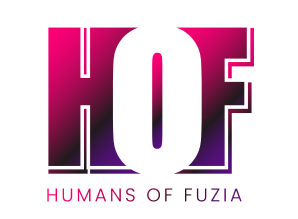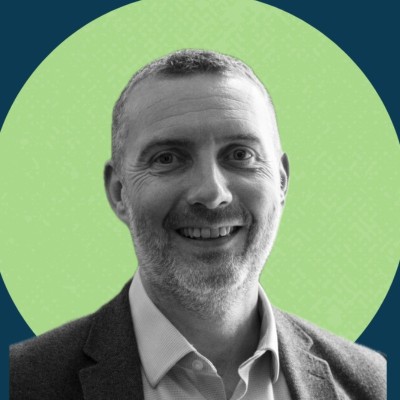Kseniia is the CEO of HeyWellness, a mental health coach, and advocate for holistic well-being. Diagnosed with ADHD in 2015, Kseniia created HeyWellness as a response to ineffective mental health apps. The platform offers science-backed strategies aimed at stable mental health, empowering individuals to manage ADHD, anxiety, and other mental health challenges. Through HeyWellness, Kseniia and her team provide personalized daily plans that combine meditation, yoga, and podcasts to support mental well-being.
Before you became the business titan you are today, enlighten us about the thrilling adventures of your pre-business life.
My journey was always about exploring myself and my true desires. First, I studied at a medical university and earned a master’s degree in pharmacy. Then, I worked a lot in pharmaceutical companies, was fascinated with the field of dermatology, and had a private practice in medical cosmetology, but then COVID-19 hit, and I had to pause my practice indefinitely. It turned out that such an unexpected hiatus in my career was a blessing in disguise, as it allowed me to discover what I’m truly passionate about—mental health. I’ve studied psychology at the university but didn’t expect to have my heart set on it years later.
Could you elaborate on the nature of your initiative/ business/current role, highlighting its purpose and the ways it benefits people?
My team and I decided to organize all the proven data we have about ADHD, anxiety, and PTSD and give people a thought-out structure with working strategies for mental healing. I wanted to empower people and assure them that all these symptoms they’re struggling with can well be dealt with with the right strategy, and this strategy is what we provide users with. Each person gets a personalized daily plan that consists of a yoga class, meditation, and podcast bundled around a specific theme like attention, memory, or even the emotion of sadness. All our healing exercises aren’t only research-based but also about the holistic approach to health. So, now, in HeyZen, you can find somatic yoga therapy classes, meditations, and podcasts with various techniques from cognitive-behavioral therapy (CBT) to treat every aspect of well-being not in isolation but in combination as an interconnected whole. In our blog articles and podcasts, we talk a lot about scientific discoveries around holistic health and yoga, how exactly it helps stress, anxiety, and PTSD, and how, for example, meditation can actually change brain activity. We collaborate with Dr. Jonathan Rosenthal, a neurologist in New York, who approves our texts and provides us with new evidence about the connection between the brain and yoga and meditation. Our aim isn’t only to give practical exercises for soothing symptoms but also to inform and educate our users. We believe that this way, they’ll be able to look at their well-being more wholesomely and know exactly how their psyche works which will help them cope with emotional and mental struggles even outside the app. The resources we provide aim to build healthy coping life skills that extend beyond those meditations or yoga sessions. So, we don’t want users to think that our app is the only place where they can find calm, but that our app is their starting point to find calmness inside themselves and keep it after meditation sessions end.
What has been the response of the users/consumers towards your venture? (You can also talk about your recognitions/ achievements here)
One of the main driving ideas behind HeyWellness is to create a tool by neurodivergent people for neurodivergent people. As such, we weren’t only the first users of HeyWellness but actually structured everything based on first-hand experience. The response from the communities of ADHD, PTSD, and anxiety-diagnosed people was more than positive. Many shared how the app helped them naturally integrate meditation into their lives, how our podcasts clarified some of the personal problems they faced, and how it’s finally easy to follow healthy routines as it’s not just a library of random exercises but a comprehensive, structured plan for every day. The most rewarding for me, personally, was to read how people can finally feel seen and understood. Knowing and seeing the real impact we’re creating is what motivates us to keep improving.
Having a strong support system is essential for your well-being. We would love to know who your biggest supporter is. Share with us and let’s celebrate the amazing people in our lives who make a positive impact.
For people with ADHD, the patience and understanding of the loved ones are especially important. For example, my husband helps me even with small daily tasks that can overwhelm me, like arranging my workspace and sticking to my routine. He also never judges me if I forget about something. Criticism is the biggest killer of inspiration, at least for me, and my husband is my safe space where I learned how to be myself without the fear of judgment or failure. This total acceptance is what helped me keep going on my toughest days, and we celebrate with double joy even the smallest wins in my project. My family gives me immense support. At the moments when I felt like I was going in the wrong direction or when I couldn’t find the right solution, they believed in me, and this belief always overpowers my hesitancy and makes me more confident in my actions.
As a woman entrepreneur, what changes do you hope to see in the world and what opportunities are you seeking?
I hope people will stop looking down on or shying away from neurodivergent individuals and instead recognize that it’s simply one of the many ways the brain functions. We need to accept and normalize having our own peculiarities, which make the world so bright and beautiful. Through my project, I also want to instill in women, neurodivergent individuals, and those with mental health challenges the understanding that we should never diminish our worth or value and that we’re totally capable of moving and progressing with our lives, careers, and relationships. We need to stay open about our problems and show the world that, together with the diagnosis and often tough challenges on the way, we can achieve the greatest heights and our craziest dreams. I believe that more and more people who have been in the shadows due to social stigma will feel empowered and finally receive the recognition they deserve.
Women now stand shoulder-to-shoulder with men in the workplace, breaking through glass ceilings to reach the top. What are your thoughts on women’s leadership today?
Women still face prejudice when they’re occupying management positions, and, actually, we can long discuss all the ridiculous whys behind women’s need to fight for their rights to be leaders. Instead, I show with my own example that a woman can successfully handle being a CEO with a stable mental health and work-life balance. Four managing roles in Hey Wellness are occupied by women as well because I believe that our soft power and compassionate approach can significantly change people’s perception of effective leadership and the image of an inspiring leader. Empowering women is best achieved through mutual support.










